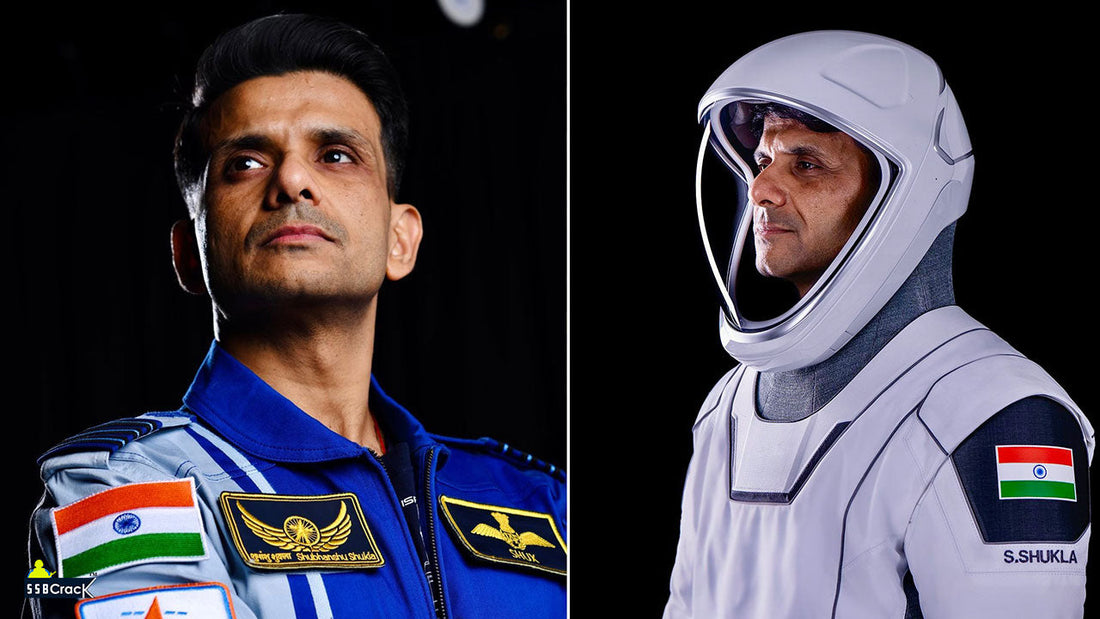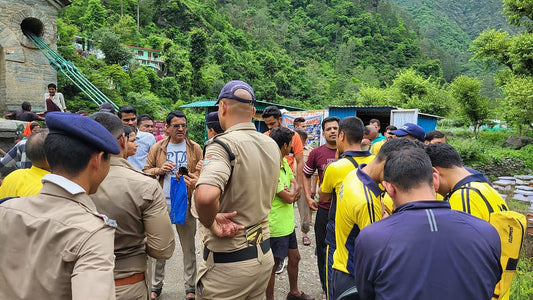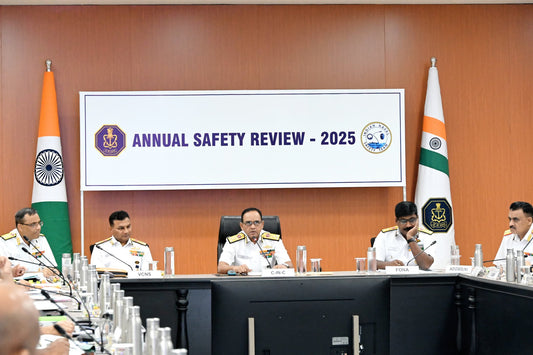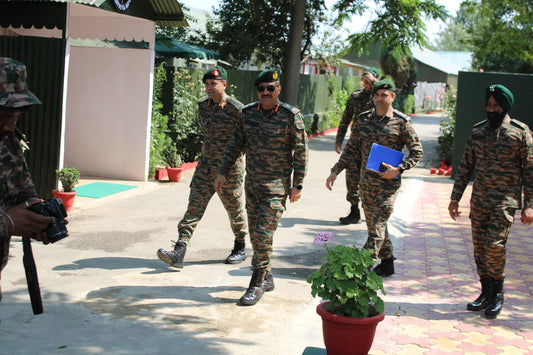Meet Group Captain Shubhanshu Shukla: India’s 1st Astronaut to Reach the International Space Station

On June 25, 2025, Group Captain Shubhanshu Shukla etched his name into the annals of Indian space exploration as the first Indian astronaut to visit the International Space Station (ISS). Piloting the Axiom Mission 4 (Ax-4), a landmark private spaceflight organized by Axiom Space in collaboration with NASA, SpaceX, and the Indian Space Research Organisation (ISRO), Shukla became only the second Indian to travel to space, following Wing Commander Rakesh Sharma’s historic 1984 mission aboard the Soviet Soyuz T-11.

This mission not only marked India’s return to human spaceflight after 41 years but also underscored the nation’s growing prominence in global space exploration. This article delves into Shukla’s remarkable journey, the skies of Lucknow to the stars, and the significance of his mission for India’s space ambitions.

Early Life and Inspiration
Born on October 10, 1985, in Lucknow, Uttar Pradesh, Shubhanshu Shukla, affectionately nicknamed “Shux” by his family, grew up in a close-knit household. His father, Shambhu Dayal Shukla, a retired government officer, and his mother, Asha Shukla, a homemaker, instilled in him values of discipline and curiosity. The youngest of three siblings, Shukla was preceded by his elder sisters, Nidhi, an MBA graduate, and Suchi Mishra, a school teacher. His childhood was marked by a fascination with aviation, sparked by witnessing an air show and fueled by the 1999 Kargil War, which inspired him to serve his nation.

Shukla’s academic journey began at City Montessori School, Aliganj, in Lucknow, where he studied alongside his future wife, Dr. Kamna Mishra, a dentist. Their bond, which evolved from childhood friendship to love, began in Class 3 and culminated in marriage. The couple now shares a six-year-old son, Kiyas. Shukla’s entry into the National Defence Academy (NDA) was serendipitous; at 17, he filled out an NDA application form originally intended for a friend who was overage. Clearing the UPSC NDA examination independently, he embarked on a path that would lead him to the stars.
Military and Academic Career
Shukla’s military career began with his enrollment at the NDA in Pune, where he earned a Bachelor of Science degree in Computer Science in 2005. Selected for the flying branch, he underwent rigorous training at the Indian Air Force Academy and was commissioned into the Indian Air Force (IAF) fighter stream as a Flying Officer in June 2006. Over nearly two decades, Shukla rose through the ranks, achieving the rank of Group Captain in March 2024. As a combat leader and seasoned test pilot, he accumulated approximately 2,000 hours of flight experience across a diverse fleet, including the Su-30 MKI, MiG-21, MiG-29, Jaguar, Hawk, Dornier 228, and An-32. His expertise in flight testing and combat operations honed the skills necessary for the challenges of spaceflight.

Parallel to his military career, Shukla pursued advanced education, earning a Master of Technology degree in Aerospace Engineering from the Indian Institute of Science (IISc) in Bengaluru. His academic pursuits complemented his practical experience, particularly in his research on “space bricks” and modular habitats for astronauts, conducted under the guidance of Prof. Aloke Kumar at IISc. This work positioned him as a problem-solver and a curious scientist, qualities that would prove invaluable in his astronaut training.
Journey to Becoming an Astronaut
Shukla’s transition from fighter pilot to astronaut began in 2019 when he was shortlisted by the Institute of Aerospace Medicine (IAM), an IAF organization, for ISRO’s Human Spaceflight Programme. Selected as one of four astronauts for the Gaganyaan mission—India’s first crewed spaceflight, scheduled for 2026—Shukla underwent rigorous evaluation by IAM and ISRO. In 2020, he traveled to the Yuri Gagarin Cosmonaut Training Center in Star City, Moscow, Russia, for a year-long basic astronaut training program, which he completed in 2021. Returning to India, he continued mission-specific training at ISRO’s Astronaut Training Facility in Bengaluru.
On February 27, 2024, Prime Minister Narendra Modi officially announced Shukla as one of the Gaganyaan astronaut team members during a visit to ISRO’s Vikram Sarabhai Space Centre in Thiruvananthapuram. Later that year, in August 2024, ISRO named Shukla as the prime astronaut and mission pilot for the Ax-4 mission, with Group Captain Prasanth Balakrishnan Nair designated as the backup pilot. The selection marked a pivotal moment, positioning Shukla to represent India on an international stage.
The Axiom Mission 4: A Historic Milestone
The Axiom Mission 4, launched on June 25, 2025, at 12:01 PM IST from NASA’s Kennedy Space Center in Florida, was a private spaceflight operated by Axiom Space in partnership with NASA, SpaceX, and ISRO. The mission, aboard a SpaceX Crew Dragon spacecraft propelled by a Falcon 9 rocket, carried a four-member international crew to the ISS for a 14-day stay. Led by veteran NASA astronaut Peggy Whitson, the crew included Shukla as the mission pilot, alongside mission specialists Slawosz Uznanski-Wisniewski from Poland and Tibor Kapu from Hungary. For India, Poland, and Hungary, Ax-4 marked the first government-sponsored mission to the ISS and the first human spaceflight in over 40 years.
The mission faced multiple delays due to technical issues, including a liquid oxygen (LOx) leak in the Falcon 9 booster detected during post-static fire tests. Originally scheduled for May 2025, the launch was postponed to June 8, then June 10, June 11, and finally June 25, 2025, after repairs and weather considerations. Despite these challenges, the crew’s preparation remained unwavering, with Shukla undergoing advanced simulations and hands-on training at SpaceX headquarters in California, as well as sessions at ESA’s European Astronaut Centre in Germany and JAXA’s Tsukuba Space Center in Japan. These trainings covered ISS communication, emergency response, scientific research in the Columbus module, and operations in the Japanese Experiment Module (Kibo).
During their stay on the ISS, the Ax-4 crew conducted approximately 60 microgravity experiments, with Shukla overseeing seven India-specific experiments developed by institutions like IISc, the Indian Institute of Space Science and Technology (IIST), and ISRO’s Department of Biotechnology. These experiments explored the impact of microgravity on edible microalgae, sprouting salad seeds, human interaction with electronic displays, and the growth of food crop seeds, among others. Shukla’s role as an astronaut-scientist highlighted the mission’s scientific focus, distinguishing it from Rakesh Sharma’s 1984 flight, which prioritized symbolic and basic spacefaring objectives.
Significance for India’s Space Program
Shukla’s mission is a cornerstone for India’s human spaceflight ambitions, particularly the Gaganyaan program, which aims to send three astronauts to a 400-km orbit for three days by 2026. The experience gained from operating in the ISS environment, adapting to microgravity, and conducting complex experiments will directly inform ISRO’s preparations for Gaganyaan and future endeavors, including a planned space station by 2035 and a lunar landing by 2040. ISRO’s investment of approximately ₹500 crore ($59 million) for Shukla’s seat and training underscores the mission’s strategic importance.
The Ax-4 mission also exemplifies India’s integration into global space collaborations. Unlike Sharma’s 1984 mission, where India was a benefactor of the Soviet Interkosmos program, Shukla’s role as a mission pilot and India’s status as a key stakeholder reflect the nation’s operational readiness and scientific contributions. Prof. Aloke Kumar of IISc emphasized that Shukla’s mission lays the groundwork for sustained human spaceflight and advances in space sciences, positioning India as a serious contender in the new space age.
Personal Reflections and National Pride
Shukla’s journey resonates deeply with Indians, carrying “the hopes and dreams of a billion hearts,” as he eloquently stated. His emotional note to his wife, Kamna, hours before the launch, highlighted her unwavering support and their shared journey from childhood friends to life partners. Kamna described Shukla as an inspiration, evolving from a “quiet, shy boy” to a national hero. His mother, Asha Shukla, praised Kamna as the “quiet strength” behind his success, while his sister, Suchi Mishra, expressed the family’s pride in his selection from India’s 1.4 billion population.
Shukla’s personal interests—physical exercise, reading science literature, and recently, exploring horoscopes despite identifying as an agnostic—reveal a multifaceted individual. His call sign “Shux” and his intention to perform yoga poses aboard the ISS reflect his blend of professionalism and cultural pride. The inclusion of a toy swan named Joy as the mission’s zero-gravity indicator, symbolizing wisdom and purity in Indian culture, added a poignant touch to the mission.
Inspiring the Next Generation
Shukla’s mission is poised to ignite curiosity among India’s youth, as he expressed his desire to “change one life” through his story. Union Minister Dr. Jitendra Singh called the mission a “defining chapter” in India’s space journey, while ISRO Chairman Dr. V. Narayanan highlighted its “phenomenal” benefits for training, exposure, and collaborative experiments. Social media posts on X reflected national pride, with users celebrating Shukla’s achievement as a testament to scientific dedication and cultural integrity.

As Group Captain Shubhanshu Shukla orbited Earth aboard the ISS, he embodied India’s aspirations to transcend earthly boundaries. His journey from a fighter pilot inspired by the Kargil War to an astronaut-scientist piloting an international mission encapsulates the power of discipline, curiosity, and ambition. With Ax-4, Shukla not only scripted history but also paved the way for India to become a truly spacefaring nation, inspiring generations to dream beyond the stars.




















1 comment
What a pride for the whole Nation that a day boy from an humble backgrd has become an astronaut.
Another striking thing observed is that in a short span of career,he has amassed 2k+ of Ying hours and as a Test pilotike his Chief has own all types of fighter and tpt aircraft
The Nation is in the safe hands.
Jai Hindu Shux